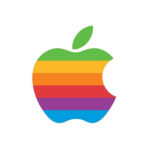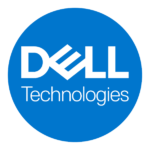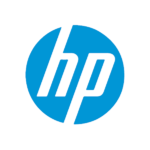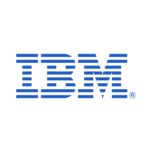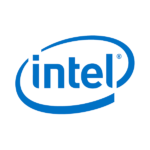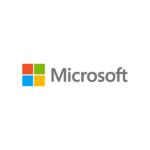Categories
- Adhesives
- Aerospace
- Agriculture
- Airplane Manufacturer
- Apparel
- Architectural Firms
- Arts & Crafts
- Automotive
- Biomedical
- Biopharmaceutical
- Biotechnology
- Building & Construction
- Business & Professional Services
- Cable Companies
- Candy Companies
- Chemical Companies
- Chemical Production
- Cleaning Products
- Cloud Computing
- Commercial Equipment
- Commercial Real Estate
- Communication Services
- Computer Hardware
- Computer Software
- Computer Storage
- Conglomerates
- Aerospace Defence Contractor
- Airlines
- Asset Management
- Banks
- Brokerages
- Beverage Companies
- Coffee Shops
- Brokerage Services
- Casinos
- Consumer Goods
- Consumer Electronics
- Containers
- Convenience Stores
- Cooperatives
- Cosmetics Companies
- Data Storage Devices
- Defence Industry
- Defense Contractors
- Dental Equipment
- Discount Stores
- Distribution Technology
- Distributors
- Electronics
- Electrical Equipment
- Electronics Manufacturers
- Entertainment
- Film Companies
- Equipment Manufacturer
- Facility Management
- Financial Services
- Credit Cards
- Extended Warranties
- Financial Technology
- Food & Drink
- Fast Food Restaurants
- Food Companies
- Food Distributor
- Food Processing
- Food Production
- Food Services
- Fortune 500
- Freight Companies
- General
- Glass & Ceramic Materials
- Glass Products
- Grocery Stores
- Hardware Stores
- Healthcare
- Drugstores
- Healthcare Services
- Healthcare Supplies
- Department Stores
- Ecommerce
- Electric Companies
- Energy Companies
- Engineering Companies
- Engineering Services
- Gas Companies
- Gas Stations
- Heavy Equipment
- Holding Companies
- Home Appliances
- Hospitality
- Industrial Distributor
- Industrial Gas
- Industrial Manufacturers
- Information Technology
- Network Services
- Information Technology Consulting
- Internet Companies
- Laboratory Equipment
- Logistics
- Managed Services
- Management Services
- Manufacturers
- Mass Media
- Media Holding Company
- Media Services
- Metals Company
- Mining Companies
- Networking Hardware & Software
- Office Supplies
- Oil & Gas Companies
- Oil & Gas Exploration
- Oilfield Equipment
- Home Building
- Home Construction
- Home Improvement
- Hospitals
- Managed Healthcare
- Medical Equipment
- Medical Technology
- Hotels
- Insurance
- Insurance Brokers
- Insurance Companies
- Investment Management Services
- Mortgage Companies
- Mutual Funds
- Internet Marketing
- Legal Services
- Loyalty Marketing Services
- Management Consulting
- Marketing
- Marketing Services
- Multi-Level Marketing
- Media Companies
- Movie Production
- Motorcycles
- OTT Media Services
- Packaging Companies
- Paper Manufacturer
- Personal Care
- Personal Goods
- Petrochemical
- Publishers
- Pulp & Paper Companies
- Real Estate
- Real Estate Finance
- Real Estate Investment Trusts
- Retail
- Security Services
- Ship Manufacturers
- Shipping Companies
- Sports Equipment
- Sports Management
- Supply Chain Services
- Technology Companies
- Telecommunications
- Television Channels
- Television Companies
- Television Production
- Tobacco
- Transportation
- Railroad Companies
- Railroad Transportation
- Travel
- Resorts
- Tourism
- Travel Technology
- Oilfield Services
- Petroleum
- Retail Fuel Company
- Pharmaceuticals
- Rehabilitation
- Public Relations
- Staffing Companies
- Rental & Leasing Services
- Restaurant Supplies
- Restaurants
- Retail Video Games
- Satellite Television
- Television
- Semiconductors
- Shoe Companies
- Sportswear
- Social Media Companies
- Steel Company
- Toy Companies
- Utilities
- Veterinary Pharmaceuticals
- Warehouse Clubs
- Waste Management
- Wholesale Floral
- Video Games
- Wholesale Arts & Crafts
- Wholesale Distributors
Listings in Computer Hardware
Apple
Apple Inc. is an American multinational technology company headquartered in Cupertino, California, that designs, develops, and sells consumer electronics, computer software, and online services. It is considered one of the Big Four tech companies along with Amazon, Google, and Facebook.[6][7] The company’s hardware products include the iPhone smartphone, the iPad tablet computer, the Mac personal computer, the iPod portable media player, the Apple Watch smartwatch, the Apple TV digital media player, the AirPods wireless earbuds and the HomePod smart speaker. Apple’s software includes the macOS, iOS, iPadOS, watchOS, and tvOS operating systems, the iTunes media player, the Safari web browser, the Shazam acoustic fingerprint utility, and the iLife and iWork creativity and productivity suites, as well as professional applications like Final Cut Pro, Logic Pro, and Xcode. Its online services include the iTunes Store, the iOS App Store, Mac App Store, Apple Music, Apple TV+, iMessage, and iCloud. Other services include Apple Store, Genius Bar, AppleCare, Apple Pay, Apple Pay Cash, and Apple Card. Apple was founded by Steve Jobs, Steve Wozniak, and Ronald Wayne in April 1976 to develop and sell Wozniak’s Apple I personal computer, though Wayne sold his share back within 12 days. It was incorporated as Apple Computer, Inc., in January 1977, and sales of its computers, including the Apple II, grew quickly. Within a few years, Jobs and Wozniak had hired a staff of computer designers and had a production line. Apple went public in 1980 to instant financial success. Over the next few years, Apple shipped new computers featuring innovative graphical user interfaces, such as the original Macintosh in 1984, and Apple’s marketing advertisements for its products received widespread critical acclaim. However, the high price of its products and limited application library caused problems, as did power struggles between executives. In 1985, Wozniak departed Apple amicably and remained an honorary employee,[8] while Jobs and others resigned to found NeXT.[9] As the market for personal computers expanded and evolved through the 1990s, Apple lost market share to the lower-priced duopoly of Microsoft Windows on Intel PC clones. The board recruited CEO Gil Amelio to what would be a 500-day charge for him to rehabilitate the financially troubled companyreshaping it with layoffs, executive restructuring, and product focus. In 1997, he led Apple to buy NeXT, solving the desperately failed operating system strategy and bringing Jobs back. Jobs pensively regained leadership status, becoming CEO in 2000. Apple swiftly returned to profitability under the revitalizing Think different campaign, as he rebuilt Apple’s status by launching the iMac in 1998, opening the retail chain of Apple Stores in 2001, and acquiring numerous companies to broaden the software portfolio. In January 2007, Jobs renamed the company Apple Inc., reflecting its shifted focus toward consumer electronics, and launched the iPhone to great critical acclaim and financial success. In August 2011, Jobs resigned as CEO due to health complications, and Tim Cook became the new CEO. Two months later, Jobs died, marking the end of an era for the company. Apple is well known for its size and revenues. Its worldwide annual revenue totaled $265 billion for the 2018 fiscal year. Apple is the world’s largest technology company by revenue and one of the world’s most valuable companies. It is also the world’s third-largest mobile phone manufacturer after Samsung and Huawei.[10] In August 2018, Apple became the first public U.S. company to be valued at over $1 trillion.[11][12] The company employs 123,000 full-time employees[13] and maintains 504 retail stores in 24 countries as of 2018.[14] It operates the iTunes Store, which is the world’s largest music retailer. As of January 2018, more than 1.3 billion Apple products are actively in use worldwide.[15] The company also has a high level of brand loyalty and is ranked as the world’s most valuable brand. However, Apple receives significant criticism regarding the labor practices of its contractors, its environmental practices and unethical business practices, including anti-competitive behavior, as well as the origins of source materials.
Dell Technologies
Dell Technologies Inc. is an American multinational technology company headquartered in Round Rock, Texas. It was formed as a result of the September 2016 merger of Dell and EMC Corporation (which later became Dell EMC).[2] Dell’s products include personal computers, servers, smartphones, televisions, computer software, computer security and network security, as well as information security services.[2] Dell ranked 35th on the 2018 Fortune 500 rankings of the largest United States corporations by total revenue.
Hewlett Packard Enterprise
The Hewlett Packard Enterprise Company (commonly referred to as HPE) is an American multinational enterprise information technology company based in San Jose, California [2], founded on 1 November 2015 as part of splitting of the Hewlett-Packard company. HPE is a business-focused organization with two divisions: Enterprise Group, which works in servers, storage, networking, consulting and support, and Financial Services. On 4 December HPE reported FY2018 net revenue of $30.9 billion, up 7% from the prior year period. The split was structured so that the former Hewlett-Packard Company would change its name to HP Inc. and spin off Hewlett Packard Enterprise as a newly created company. HP Inc. retained the old HP’s personal computer and printing business, as well as its stock-price history and original NYSE ticker symbol for Hewlett-Packard; Enterprise trades under its own ticker symbol: HPE. According to notes from 2015,[3] HPE’s revenue was slightly less than that of HP Inc. In 2017, it spun off its Enterprise Services business and merged it with Computer Sciences Corporation to become DXC Technology. It also spun off its software business and merged it with Micro Focus. HPE ranked No. 107 in the 2018 Fortune 500 list of the largest United States corporations by total revenue.
HP
HP Inc. (also known as HP and stylized as hp) is an American multinational information technology company headquartered in Palo Alto, California, United States. It develops personal computers (PCs), printers and related supplies, as well as 3D printing solutions. It was formed on November 1, 2015, renamed from the personal computer and printer divisions of the original Hewlett-Packard Company, with its enterprise products and services businesses becoming Hewlett Packard Enterprise. The split was structured so that Hewlett-Packard changed its name to HP Inc. and spun off Hewlett Packard Enterprise as a new publicly traded company. HP Inc. retains Hewlett-Packard’s pre-2015 stock price history and its former stock ticker symbol, HPQ, while Hewlett Packard Enterprise trades under its own symbol, HPE.[3][4] HP is listed on the New York Stock Exchange and is a constituent of the S&P 500 Index. It is the world’s largest personal computer vendor by unit sales, having regained its position in 2017 since it was overtaken by Lenovo in 2013. HP ranked No. 58 in the 2018 Fortune 500 list of the largest United States corporations by total revenue.
IBM
International Business Machines Corporation (IBM) is an American multinational information technology company headquartered in Armonk, New York, with operations in over 170 countries. The company began in 1911, founded in Endicott, New York, as the Computing-Tabulating-Recording Company (CTR) and was renamed “International Business Machines” in 1924. IBM is incorporated in New York.[5] IBM produces and sells computer hardware, middleware and software, and provides hosting and consulting services in areas ranging from mainframe computers to nanotechnology. IBM is also a major research organization, holding the record for most U.S. patents generated by a business (as of 2019) for 26 consecutive years.[6] Inventions by IBM include the automated teller machine (ATM), the floppy disk, the hard disk drive, the magnetic stripe card, the relational database, the SQL programming language, the UPC barcode, and dynamic random-access memory (DRAM). The IBM mainframe, exemplified by the System/360, was the dominant computing platform during the 1960s and 1970s. IBM is currently also active in the field of quantum computing research, producing the first quantum computer in the cloud called the IBM Q Experience and producing the first true marketable quantum computer, called IBM Q System One IBM has continually shifted business operations by focusing on higher-value, more profitable markets. This includes spinning off printer manufacturer Lexmark in 1991 and the sale of personal computer (ThinkPad/ThinkCentre) and x86-based server businesses to Lenovo (in 2005 and 2014, respectively), and acquiring companies such as PwC Consulting (2002), SPSS (2009), The Weather Company (2016), and Red Hat (2019). Also in 2015, IBM announced that it would go “fabless”, continuing to design semiconductors, but offloading manufacturing to GlobalFoundries. Nicknamed Big Blue, IBM is one of 30 companies included in the Dow Jones Industrial Average and one of the world’s largest employers, with (as of 2018) over 350,000 employees, known as “IBMers”. At least 70% of IBMers are based outside the United States, and the country with the largest number of IBMers is India.[7] IBM employees have been awarded five Nobel Prizes, six Turing Awards, ten National Medals of Technology (USA) and five National Medals of Science (USA).
Intel
Intel Corporation (commonly known as Intel and stylized as intel) is an American multinational corporation and technology company headquartered in Santa Clara, California, in the Silicon Valley. It is the world’s second largest and second highest valued semiconductor chip manufacturer based on revenue after being overtaken by Samsung Electronics,[3][4] and is the inventor of the x86 series of microprocessors, the processors found in most personal computers (PCs). Intel ranked No. 46 in the 2018 Fortune 500 list of the largest United States corporations by total revenue.[5] Intel is incorporated in Delaware. [6] Intel supplies processors for computer system manufacturers such as Apple, Lenovo, HP, and Dell. Intel also manufactures motherboard chipsets, network interface controllers and integrated circuits, flash memory, graphics chips, embedded processors and other devices related to communications and computing. Intel Corporation was founded on July 18, 1968, by semiconductor pioneers Robert Noyce and Gordon Moore (of Moore’s law), and is associated with the executive leadership and vision of Andrew Grove. The company’s name was conceived as portmanteau of the words integrated and electronics, with co-founder Noyce having been a key inventor of the integrated circuit (microchip). The fact that “intel” is the term for intelligence information also made the name appropriate.[7] Intel was an early developer of SRAM and DRAM memory chips, which represented the majority of its business until 1981. Although Intel created the world’s first commercial microprocessor chip in 1971, it was not until the success of the personal computer (PC) that this became its primary business. During the 1990s, Intel invested heavily in new microprocessor designs fostering the rapid growth of the computer industry. During this period Intel became the dominant supplier of microprocessors for PCs and was known for aggressive and anti-competitive tactics in defense of its market position, particularly against Advanced Micro Devices (AMD), as well as a struggle with Microsoft for control over the direction of the PC industry.[8][9] The Open Source Technology Center at Intel hosts PowerTOP and LatencyTOP, and supports other open-source projects such as Wayland, Mesa3D, Intel Array Building Blocks, Threading Building Blocks (TBB), and Xen.
Microsoft
Microsoft Corporation is an American multinational technology company with headquarters in Redmond, Washington. It develops, manufactures, licenses, supports, and sells computer software, consumer electronics, personal computers, and related services. Its best known software products are the Microsoft Windows line of operating systems, the Microsoft Office suite, and the Internet Explorer and Edge Web browsers. Its flagship hardware products are the Xbox video game consoles and the Microsoft Surface lineup of touchscreen personal computers. As of 2016, it is the world’s largest software maker by revenue,[3] and one of the world’s most valuable companies.[4] The word “Microsoft” is a portmanteau of “microcomputer” and “software”.[5] Microsoft is ranked No. 30 in the 2018 Fortune 500 rankings of the largest United States corporations by total revenue.[6] Microsoft was founded by Bill Gates and Paul Allen on April 4, 1975, to develop and sell BASIC interpreters for the Altair 8800. It rose to dominate the personal computer operating system market with MS-DOS in the mid-1980s, followed by Microsoft Windows. The company’s 1986 initial public offering (IPO), and subsequent rise in its share price, created three billionaires and an estimated 12,000 millionaires among Microsoft employees. Since the 1990s, it has increasingly diversified from the operating system market and has made a number of corporate acquisitions, their largest being the acquisition of LinkedIn for $26.2 billion in December 2016,[7] followed by their acquisition of Skype Technologies for $8.5 billion in May 2011.[8] As of 2015, Microsoft is market-dominant in the IBM PC compatible operating system market and the office software suite market, although it has lost the majority of the overall operating system market to Android.[9] The company also produces a wide range of other consumer and enterprise software for desktops, laptops, tabs, gadgets, and servers, including Internet search (with Bing), the digital services market (through MSN), mixed reality (HoloLens), cloud computing (Azure), and software development (Visual Studio). Steve Ballmer replaced Gates as CEO in 2000, and later envisioned a “devices and services” strategy.[10] This unfolded with Microsoft acquiring Danger Inc. in 2008,[11] entering the personal computer production market for the first time in June 2012 with the launch of the Microsoft Surface line of tablet computers, and later forming Microsoft Mobile through the acquisition of Nokia’s devices and services division. Since Satya Nadella took over as CEO in 2014, the company has scaled back on hardware and has instead focused on cloud computing, a move that helped the company’s shares reach its highest value since December 1999.[12][13] In 2018, Microsoft surpassed Apple Inc. as the most valuable publicly traded company in the world after being dethroned by the tech giant in 2010.[14] In April 2019, Microsoft reached the trillion-dollar market cap, becoming the third U.S. public company to be valued at over $1 trillion after Apple and Amazon respectively.
Nvidia
Nvidia Corporation, more commonly referred to as Nvidia (stylized as NVIDIA; formerly stylized as nVidia on products from the mid 90s to early 2000s), is an American technology company incorporated in Delaware and based in Santa Clara, California. It designs graphics processing units (GPUs) for the gaming and professional markets, as well as system on a chip units (SoCs) for the mobile computing and automotive market. Its primary GPU product line, labeled “GeForce”, is in direct competition with Advanced Micro Devices’ (AMD) “Radeon” products. Nvidia expanded its presence in the gaming industry with its handheld Shield Portable, Shield Tablet, and Shield Android TV. Since 2014, Nvidia has diversified its business focusing on four markets: gaming, professional visualization, data centers, and auto. Nvidia is also now focused on artificial intelligence. In addition to GPU manufacturing, Nvidia provides parallel processing capabilities to researchers and scientists that allow them to efficiently run high-performance applications. They are deployed in supercomputing sites around the world. More recently, it has moved into the mobile computing market, where it produces Tegra mobile processors for smartphones and tablets as well as vehicle navigation and entertainment systems. In addition to AMD, its competitors include Intel, Qualcomm, and Arm (e.g., because of Denver, while Nvidia also licenses Arm’s designs).
Tech Data
Tech Data Corporation (commonly referred to as Tech Data) is an American multinational distribution company specializing in IT products and services headquartered in Clearwater, Florida. Tech Data provides a broad range of product lines, logistics capabilities and value-added services that enable technology manufacturers and resellers, such as Google, Apple, Cisco, Dell, Fortinet, Hewlett Packard Enterprise, HP Inc., IBM, Lenovo, LG, Microsoft, Samsung, Sony, Symantec, Trend Micro, Viewsonic and VMware, to deploy IT solutions. Tech Data is now one of the world’s largest distributors of IT products and services, generating $37.7 billion in net sales for the fiscal year ended January 31, 2017.[2] The company ranked No. 83 on the 2018 Fortune 500[3] and one of Fortune’s “World’s Most Admired Companies.”
Western Digital
Western Digital Corporation (abbreviated WDC, commonly known as simply Western Digital and WD) is an American computer hard disk drive manufacturer and data storage company. It designs, manufactures and sells data technology products, including storage devices, data center systems and cloud storage services. Western Digital has a long history in the electronics industry as an integrated circuit maker and a storage products company. It is also one of the larger computer hard disk drive manufacturers, along with its primary competitor Seagate Technology.
